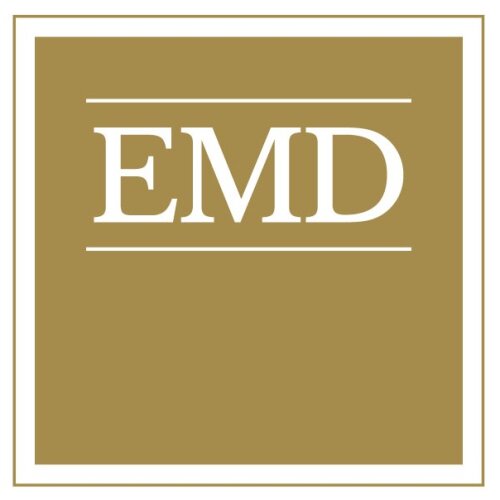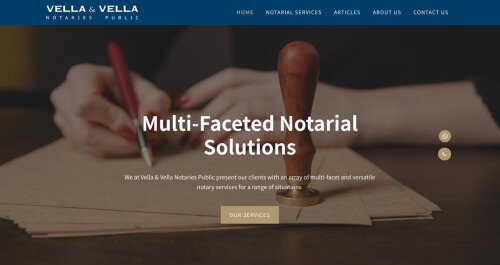Best ADR Mediation & Arbitration Lawyers in Malta
Share your needs with us, get contacted by law firms.
Free. Takes 2 min.
Or refine your search by selecting a city:
List of the best lawyers in Malta
About ADR Mediation & Arbitration Law in Malta
Alternative Dispute Resolution (ADR), which includes mediation and arbitration, is a crucial part of the legal landscape in Malta. These methods offer a way to resolve disputes outside of traditional court procedures. Malta has developed a strong framework for ADR, recognizing its potential to alleviate court caseloads and provide timely resolutions. The Maltese legal system, influenced by both common and civil law traditions, embraces ADR as a flexible, confidential, and efficient way to resolve disputes, prioritizing party autonomy and consensual outcomes.
Why You May Need a Lawyer
While ADR processes such as mediation and arbitration are generally less formal than court proceedings, there are many reasons why you might need a lawyer:
- Complex disputes: Legal counsel can help navigate complex legal and factual issues involved in a dispute.
- Drafting and reviewing agreements: A lawyer can ensure that all agreements reached are legally sound and enforceable.
- Representation: Legal guidance during mediation or arbitration can help present your case effectively.
- Objectivity: Lawyers can provide an objective perspective, helping to evaluate the strengths and weaknesses of a case.
- Ensuring procedural compliance: A lawyer can ensure that legal and procedural norms are adhered to during ADR processes.
Local Laws Overview
Maltese law recognizes ADR as an integral part of its legal system. The Arbitration Act governs arbitration proceedings and aligns with international standards, making Maltese arbitration highly attractive for international disputes. The Mediation Act provides for the establishment of the Malta Mediation Centre, which oversees and promotes mediation as a dispute resolution method. These laws ensure that ADR proceedings in Malta are conducted fairly, impartially, and efficiently, with an emphasis on reconciliation and mutual agreement.
Frequently Asked Questions
What is the difference between mediation and arbitration?
Mediation involves a neutral third-party facilitator who helps parties reach a voluntary agreement, while arbitration involves a neutral third-party decision-maker whose ruling is usually binding.
Is ADR mandatory in Malta?
ADR is not mandatory, but Maltese courts often encourage parties to attempt mediation before pursuing a trial for certain types of disputes.
Are ADR decisions enforceable in Malta?
Yes, arbitration awards are enforceable internationally under the New York Convention, to which Malta is a signatory, while mediated agreements can be made enforceable in court.
How do I start an ADR process in Malta?
You can initiate mediation by contacting the Malta Mediation Centre or arbitration through an arbitration institution or by appointing an arbitrator as per the mutual agreement.
Do I need a lawyer for mediation?
While not mandatory, having a lawyer can be beneficial to ensure your interests are effectively represented and your rights protected during mediation.
What types of disputes can be resolved through ADR?
Most commercial, civil, family, and labor disputes can be resolved through ADR. However, some criminal and highly contentious civil matters may be unsuitable.
How long does ADR take to reach a resolution?
ADR is typically faster than court proceedings, with mediation sessions often lasting a few days to weeks and arbitration usually taking several months.
What are the costs associated with ADR in Malta?
Costs vary based on the complexity of the case, the chosen arbitrator or mediator's fees, and the legal fees for representation. It usually is less costly than court litigation.
Can I appeal an arbitration award?
Arbitration awards can be challenged on limited grounds such as fraud, bias, or procedural irregularities, but they generally offer finality.
What happens if mediation fails?
If mediation does not result in an agreement, parties may choose to proceed to arbitration or litigation. Mediation discussions remain confidential and cannot be used in later proceedings.
Additional Resources
For additional assistance, you may contact or reference:
- The Malta Mediation Centre: Provides mediation services and resources.
- The Malta Arbitration Centre: Offers facilities and rules for conducting arbitration.
- The Chamber of Advocates: Can help you find legal representation specialized in ADR.
- The Ministry for Justice, Culture and Local Government: Overseeing ADR legislative framework and reforms.
Next Steps
If you need legal assistance in ADR Mediation & Arbitration in Malta, consider the following steps:
- Identify the nature of your dispute and determine whether ADR is suitable.
- Consult a lawyer specializing in ADR to discuss your situation and legal options.
- Contact the Malta Mediation Centre or a reputable arbitration institution to initiate proceedings.
- Prepare all relevant documentation and information for the ADR process with the help of your lawyer.
- Engage actively in the ADR process with the aim of reaching a fair and amicable resolution.
Lawzana helps you find the best lawyers and law firms in Malta through a curated and pre-screened list of qualified legal professionals. Our platform offers rankings and detailed profiles of attorneys and law firms, allowing you to compare based on practice areas, including ADR Mediation & Arbitration , experience, and client feedback.
Each profile includes a description of the firm's areas of practice, client reviews, team members and partners, year of establishment, spoken languages, office locations, contact information, social media presence, and any published articles or resources. Most firms on our platform speak English and are experienced in both local and international legal matters.
Get a quote from top-rated law firms in Malta — quickly, securely, and without unnecessary hassle.
Disclaimer:
The information provided on this page is for general informational purposes only and does not constitute legal advice. While we strive to ensure the accuracy and relevance of the content, legal information may change over time, and interpretations of the law can vary. You should always consult with a qualified legal professional for advice specific to your situation.
We disclaim all liability for actions taken or not taken based on the content of this page. If you believe any information is incorrect or outdated, please contact us, and we will review and update it where appropriate.
Browse adr mediation & arbitration law firms by city in Malta
Refine your search by selecting a city.















